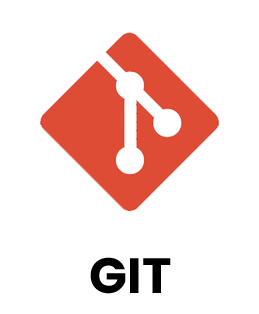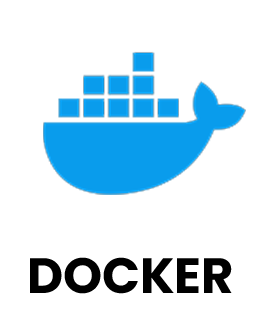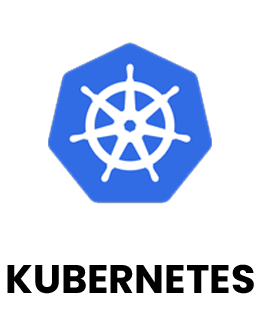About DevOps Certification Online Training Course in San Francisco USA
ACTE help advance the careers and support emerging practices within the DevOps community based on a human-centered SKIL framework, consisting of Skills, Knowledge, Ideas, and Learning.
Benefits
IT Experts have immense pressure to improve the business efficiency by developing, testing and deploying a product securely, so DevOps has become a software development methodology. DevOps focuses on the interaction between development and operations teams. CI/CD tools like Jenkins, Puppet, Docker make the DevOps to Enhance collaboration between Development and operations team.
Well if, you’re coming to career is the main thing in your life so that DevOps Certification career requires learning to be a skilled communicator, perhaps most especially becoming a skilled listener. DevOps Certification also calls for a willingness to push for positive change…. as well as something that brings conventionally disconnected components in the development, deployment, and delivery of software into a single loop. Organizations are finding that DevOps Certification is replacing their traditional IT departments
DevOps Certification assimilates development and operations teams to improve the collaboration process. A DevOps Certification Engineer will work with IT developers to facilitate better coordination among operations, development, and testing functions by automating and streamlining the integration and deployment processes. The field of security is peculiar because the more you automated, the higher chances of automating problems too. So all automation being done in this area to be intrinsically controlled, and this brings enormous scope for DevOps Certification philosophy. DevOps Certification has a great and promising future.
Absolutely, No DevOps Certification is easy if you have the pre-requisite skills (Linux fundamental ad Shell Scripting), our trainers will make it simple easy and intresting. Chef, Puppet, OpenStack, etc. are DevOps Certification tools and those are includes everyday System Admin skills. ... DevOps Certification is the cross-section of software engineering and systems administration. Moreover it is easy to learn
We are happy and proud to say that we have strong relationship with over 700+ small, mid-sized and MNCs. Many of these companies have openings for DevOps Certification developer. Moreover, we have a very active placement cell that provides 100% placement assistance to our students. The cell also contributes by training students in mock interviews and discussions even after the course completion.
Both are Good and both are having their own Specialty as well as both has future. DevOps Certification is a combination of software development and operations and as its name suggests, it's a melding of these two disciplines in order to emphasize communication, collaboration, and cohesion between the traditionally separate developer and IT operations teams.DevOps Certification helps an organization deploy software more frequently, while maintaining service stability and gaining the speed necessary for more innovation.
DevOps Certification brings a set of principles and values to promote collaborative development and deployment approach and it can be achieved by using certain tools and processes. Hence DevOps Certification is neither easy nor difficult, it depends on how you perceive it.
For a minimum understanding of DevOps Certification for beginners, it requires only 10–15 hours. To get a medium level understanding of DevOps Certification will require a minimum of 40–60 hours. For high-level understanding, it requires more than 2 projects.
Yes, Of course you can. Just like a person without any IT experience can enter programming, System Administration, Quality Assurance, Hardware etc……..There is always an entry point to IT and DevOps Certification is always special. And just like those other fields you will have a steep DevOps Certification as a learning curve.so make use of it…..
Our courseware is designed to give a hands-on approach to the students in DevOps Certification . The course is made up of theoretical classes that teach the basics of each module followed by high-intensity practical sessions reflecting the current challenges and needs of the industry that will demand the students’ time and commitment.
DevOps Certification Is Quite intresting
Definitely, it's a good choice if you want to learn DevOps Certification . Many big IT companies such as ADP, eBay, GE, ING, Intuit, PayPal, Splunk, Uber, JP Morgan are looking for DevOps Certification experts…. DevOps Certification is more than what your resume can effectively communicate, namely the so-called soft skills. And it and good to take DevOps Certification in 2020
Yes, DevOps Certification is currently having a huge demand in IT sectors, with no signs of slowing down. According to the 2020 State of DevOps Certification Report, organizations using DevOps Certification practices could deploy code up to 30 times more frequently than their competitors. ... According to IT survey the average salary for a DevOps Certification engineer is a juicy $100,000 per year.
Top to be a Better Agility, Effective and faster deployment of apps and software. ..DevOps Certification - a perfect source for earning money and a faster business development cycle. ...Boost product quality. ...Lower IT staff and costs. ...Become a valuable asset for the company. and You will get the chance to work with professional developers
However, your qualifications, experience, and interest also matter. With the right talent and combination, there is a good chance that an experienced DevOps Certification candidate can advance into senior technical or management roles in the future.
Challenges of DevOps
There are many challenges in a DevOps initiative. Your organization must reimagine its structure to improve the way things get done. Companies often underestimate the amount of work required in a DevOps transformation, though. According to a recent Gartner study, 75% of DevOps initiatives through 2020 will fail to meet their goals due to issues around organizational learning and change.
“Organizational learning and change are key to allowing DevOps to flourish. In other words, people-related factors tend to be the greatest challenges — not technology, ” says Gartner senior analyst George Spafford.
Choosing the Right Metrics is Hard
Enterprises transitioning to DevOps practices need to use metrics to recognize progress, document success, and uncover areas that need improvement, Forrester notes. For example, an acceleration in deployment velocity without a corresponding improvement in quality is not a success. An effective DevOps effort needs metrics that drive smart automation decisions and yet organizations often struggle with DevOps metrics.So where to start. Find metrics that align with velocity and throughput success.
Limited Funds
DevOps initiatives face other obstacles as well. Given the significant organizational and IT changes involved—with previously siloed teams joining forces, changing job roles, and encountering other transitions— adjustments will take time. According to a survey of IT executives from software company Pensa, the top challenges to DevOps success are:
- Limited budgets (cited by 19.7% of respondents)
- Legacy systems (17.2%)
- Application complexity (12.8%)
- Difficulty managing multiple environments (11.3%)
- Company culture (9.4%)
Complexity
- DevOps efforts can be mired in complexity. IT leaders may have difficulty articulating the business value of their work to key executives.
- In terms of governance, will centralization and standardization lead to better results, or just more layers of innovation-killing bureaucracy.
- And then there's organizational change Can your teams overcome resistance to change and inertia, unlearning many years of doing things a certain way, share their practices and learn.
- Unrealistic Goals, Bad Metrics Can Wreck DevOps
- DevOps efforts can fail for many reasons, such as setting unrealistic expectations, tracking metrics that don't align with business goals, or implementing a half-baked DevOps effort that embraces agile methodologies while keeping IT ops and engineering/development teams in traditional silos.
The Future of DevOps
- The future of DevOps will likely bring changes in tooling and organizational strategies, but its core mission will remain the same
Automation Will Play a Major Role
- Automation will continue to play a major role in DevOps transformation, and artificial intelligence for IT operations—AIOps—will help organizations achieve their DevOps goals.
- The core elements of AIOps—machine learning, performance baselining, anomaly detection, automated root cause analysis (RCA) and predictive insights—work together to accelerate routine operational tasks.
- This emerging technology, which can transform how IT operations teams manage alerts and resolve issues, will be a crucial component of the future of DevOps.
AIOps Will Make Service Uptime Easier to Achieve
- In addition to using data science and computational techniques to automate mundane tasks, AIOps also ingests metrics and uses inference models to pull actionable insights from data, notes data science architect Jiayi Hoffman.
- AIOps' automation capabilities can make service uptime much easier to achieve, from monitoring to alerting to remediation.
- And AIOps is a boon for DevOps teams, who can use AIOps tools for real-time analysis of event streams, proactive detection to reduce downtime, improved collaboration, faster deployments, and more.
Will Sharpen Focus on Cloud Optimization
- The future of DevOps will also bring a greater focus on optimizing the use of cloud technologies.
- The centralized nature of the cloud provides DevOps automation with a standard platform for testing, deployment, and production notes Deloitte Consulting analyst David Linthicum.
- And regardless of what advanced technologies the future brings, organizations will need to realize that DevOps is all about the journey and that the organization's DevOps-related goals and expectations will evolve over time.
Show More








































